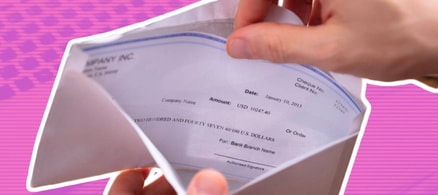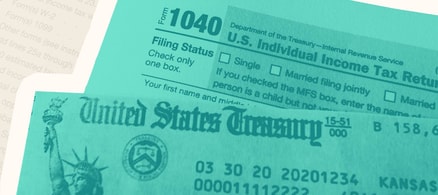When people see GoFundMe fundraisers, they trust that the money they donate will get to the people or initiatives it is meant for.
According to their 2022 Giving Report, GoFundMe has raised over $25 billion in crowdfunding efforts, with only a small per-transaction fee (2.9% plus 0.30 to cover debit and credit card payments) being subtracted from the recipients’ final total.
That means 28 million people have either sent or received help this year.
Generosity begets generosity — after creating their own fundraiser, one out of every 11 users donated to someone else’s crowdfunding campaign on GoFundMe.
Even though Americans have been giving more and more to charitable initiatives over the past few years, the rules about what can and can’t be claimed on your taxes are strict and straight-forward.
Let’s cut to the chase to see what that means for your donations.
What is GoFundMe, exactly?
GoFundMe is a crowdfunding website that describes itself as an administrative platform that facilitates fundraisers on behalf of the organizer and permits donors to make donations to the fundraiser of their choice.
It is clear in its terms and conditions that it doesn’t take legal responsibility for the promises made by the fundraisers, and GoFundMe does not solicit donations on anyone’s behalf.
If you are an organizer, once your bank information has been verified, payments will be sent to your account, automatically.
Individual donations take an average of 1-14 business days to process before being included in the next outgoing transfer.
Once GoFundMe has sent out the transfer, you can expect to see the money in your account within 2-5 business days.
Meet Your Retirement Goals Effortlessly
The road to retirement may seem long, but with WiserAdvisor, you can find a trusted partner to guide you every step of the way
WiserAdvisor matches you with vetted financial advisors that offer personalized advice to help you to make the right choices, invest wisely, and secure the retirement you've always dreamed of. Start planning early, and get your retirement mapped out today.
Get StartedCan I really trust GoFundMe with my money?
It is up to your own discretion if you trust the fundraiser you’re interested in contributing to, but according to GoFundMe’s FAQ page on fraudulent campaigns, “fake” fundraisers are less than one tenth of 1% of their total donations.
How much money actually gets to where I’d like it to go?
GoFundMe does charge a payment processing fee on each donation.
On their website, they describe a hypothetical situation where “Kelly” needs $500 for her dog’s vet bill.
If Kelly receives 20 verified donations of $25, which works out to $500 before the processing fees, she will actually receive $479.21.
Stop overpaying for home insurance
Home insurance is an essential expense – one that can often be pricey. You can lower your monthly recurring expenses by finding a more economical alternative for home insurance.
SmartFinancial can help you do just that. SmartFinancial’s online marketplace of vetted home insurance providers allows you to quickly shop around for rates from the country’s top insurance companies, and ensure you’re paying the lowest price possible for your home insurance.
Explore better ratesWhat is the most 'popular' kind of GoFundMe?
GoFundMe is the self-proclaimed leader of crowdfunding for medical fundraisers, hosting over 250,000 medical fundraisers and raising over $750 million each year.
According to The Hill, in 2021, one in three campaigns hosted by the platform attempted to crowdsource funds for medical expenses.
Are GoFundMe contributions tax deductible?
The short answer: maybe.
According to the IRS, ‘gifts’ to individuals are not tax deductible, but gifts to recognized organizations are.
The IRS goes on to suggest that if your fundraiser meets certain financial thresholds, that you can file Form 1099-K.
Since January 2022, if you receive in excess of $600 of gross donations, you’ll need that form.
GoFundMe, on their part, echoes the IRS: charity fundraisers can be claimed on your taxes, but personal fundraisers are often considered gifts.
That means that $25 you sent to your best friend for her accountant certification is not tax deductible, while the $25 you sent to UNICEF is.
While GoFundMe doesn’t issue tax receipts for donations to personal fundraisers, in some cases (like, if the funds will be considered income and go towards living expenses) donations are tax deductible.
If you’re in doubt about whether or not you can claim your donation, GoFundMe advises keeping meticulous records and to ask a tax professional.
If you wonder whether you’re contributing to a “Certified Charity Fundraiser,” the name of the charitable recipient (UNICEF) will be next to the organizer’s name, along with the words, “registered charity.”
In an interesting workaround, GoFundMe has also started their own charity.
More: Should you take the standard tax deduction?
GoFundMe Causes
While GoFundMe Inc. is the for-profit company with the name recognition, GoFundMe.org is their charitable arm.
GoFundMe.org (which was called the Direct Impact Fund until 2019) is like a charitable conglomerate — they have types of causes that they support on their “Causes” page, such as animal rescue, veterans, the environment, or mental health initiatives.
GoFundMe.org administers your donations and distributes them, with 0.96 of every dollar going directly to the cause you want to support.
GoFundMe.org is a 501(c)(3) public charity, so any donations you make to their organization are tax deductible.
If you donated through the GoFundMe website, your tax receipt should be emailed to you, automatically.
If you donated through another method, GoFundMe tends to mail out tax receipts every quarter.
GoFundMe seems both reliable and transparent about its crowdfunding processes.
As long as you feel confident about the campaign you’re considering donating to, feel free to go out and spread the wealth.
More: Compare the best tax software
Sponsored
Follow These Steps if you Want to Retire Early
Secure your financial future with a tailored plan to maximize investments, navigate taxes, and retire comfortably.
Zoe Financial is an online platform that can match you with a network of vetted fiduciary advisors who are evaluated based on their credentials, education, experience, and pricing. The best part? - there is no fee to find an advisor.







